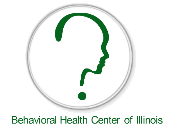




Grief and Loss
What is grief and loss?
Grief is a natural response to losing someone or something that’s important to you. You may feel a variety of emotions, like sadness or loneliness. And you might experience it for a number of different reasons. Maybe a loved one died, a relationship ended, or you lost your job. Other life changes, like chronic illness or a move to a new home, can also lead to grief.
Everyone grieves differently. But if you understand your emotions, take care of yourself, and seek support, you can heal.
What Are the Stages of Grief?
Your feelings may happen in phases as you come to terms with your loss. You can’t control the process, but it’s helpful to know the reasons behind your feelings. Doctors have identified five common stages of grief:
- Denial: When you first learn of a loss, it’s normal to think, “This isn’t happening.” You may feel shocked or numb. This is a temporary way to deal with the rush of overwhelming emotion. It’s a defense mechanism.
- Anger: As reality sets in, you’re faced with the pain of your loss. You may feel frustrated and helpless. These feelings later turn into anger. You might direct it toward other people, a higher power, or life in general. To be angry with a loved one who died and left you alone is natural, too.
- Bargaining: During this stage, you dwell on what you could’ve done to prevent the loss. Common thoughts are “If only…” and “What if…” You may also try to strike a deal with a higher power.
- Depression: Sadness sets in as you begin to understand the loss and its effect on your life. Signs of depression include crying, sleep issues, and a decreased appetite. You may feel overwhelmed, regretful, and lonely.
- Acceptance: In this final stage of grief, you accept the reality of your loss. It can’t be changed. Although you still feel sad, you’re able to start moving forward with your life.
Every person goes through these phases in his or her own way. You may go back and forth between them, or skip one or more stages altogether. Reminders of your loss, like the anniversary of a death or a familiar song, can trigger the return of grief.
How Long Is Too Long to Mourn?
There’s no “normal” amount of time to grieve. Your grieving process depends on a number of things, like your personality, age, beliefs, and support network. The type of loss is also a factor. For example, chances are you’ll grieve longer and harder over the sudden death of a loved one than, say, the end of a romantic relationship.
With time, the sadness eases. You’ll be able to feel happiness and joy along with grief. You’ll be able to return to your daily life.
Do I Need Professional Help?
In some cases, grief doesn’t get better. You may not be able to accept the loss. Doctors call this “complicated grief.” Talk to your doctor if you have any of the following:
- Trouble keeping up your normal routine, like going to work and cleaning the house
- Feelings of depression
- Thoughts that life isn’t worth living, or of harming yourself
- Any inability to stop blaming yourself
A therapist can help you explore your emotions. They can also teach you coping skills and help you manage your grief. If you’re depressed, a doctor may be able to prescribe medicines to help you feel better.
When you’re in deep, emotional pain, it can be tempting to try to numb your feelings with drugs, alcohol, food, or even work. But be careful. These are temporary escapes that won’t make you heal faster or feel better in the long run. In fact, they can lead to addiction, depression, anxiety, or even an emotional breakdown.
Instead, try these things to help you come to terms with your loss and begin to heal:
- Give yourself time. Accept your feelings and know that grieving is a process.
- Talk to others. Spend time with friends and family. Don’t isolate yourself.
- Take care of yourself. Exercise regularly, eat well, and get enough sleep to stay healthy and energized.
- Return to your hobbies. Get back to the activities that bring you joy.
- Join a support group. Speak with others who are also grieving. It can help you feel more connected.
WebMD Medical Reference Reviewed by Carol DerSarkissian on November 6, 2016

| Couples Therapy |
| Depression |
| Anxiety |
| Grief and Loss |
| PTSD |